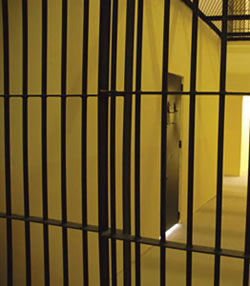Implementation, implementation, implementation
Justice is reforming, privatisations are stalling and farmers need to access their EU cash, as ‘The Diplomat’ examines the last lap to the EU finish line
Raised in what will hopefully be the last critical European Commission monitoring report on Romania are concerns about the country’s fitness for accession to the 25 member bloc next January.
Below is a summary of some major issues still to be addressed and, this being the media, we accentuate the negative.
Public administration: step up reform
The Government continues to decentralise its power: there is now a new law stating that prefects, who administer counties, must be high level civil servants and not political appointees.
However the authorities still send some legislation to Parliament without assessing all the implications or the administrative capacity the public sector will need to enforce it. The Government also forces through too many ‘emergency ordinances’, this gives it too much power at the expense of Parliament and debate.
 Bad treatment in custody and prison conditions: limited progress
Bad treatment in custody and prison conditions: limited progress
Delays by the Government in adopting a new criminal code and a new criminal procedure code prevent the reform of the prison system. Some law enforcement officers are still using excessive measures on those in custody. There is overcrowding in prisons and poor sanitation. There are also “insufficient” resources for the probation service.
Justice: maintain current pace of reform
The Commission’s report lauds the efforts made to reform the justice system, however there are still 600 vacant positions for prosecutors – up from 588 in October 2005.
Fight against corruption: progress made
Now finally allowed to operate, the new Anti-Corruption Department (DNA) has taken the focus away from petty corruption to prosecuting medium and high level graft. So far, 14 top political figures from the opposition and ruling coalition parties have been investigated, some on the basis of unclear wealth declarations, with four indictments, but no convictions. However there is no law on establishing an independent agency to verify wealth declarations.
The report points out that the Parliament rejected a request by the DNA for the department to search the property of an MP, understood to be referring to former Prime Minister Nastase.
The Senate also rejected a DNA proposal to investigate MPs on the same level as the common man, although this law was eventually passed. There is concern that judges do not understand the technicalities of complex economic and financial cases into fraud and public procurement.
Petty corruption is still a problem in health and education. Bribery in these sectors is rife.
The report wants a ‘sustained effort’ from Parliament, Government and the justice system to make sure that the existing reform package becomes a permanent fixture.
 Minorities: limited progress on Rroma inclusion
Minorities: limited progress on Rroma inclusion
There are still complaints about police raids on the Rroma. In some cases, authorities have expelled the Rroma from their houses, then demolished the properties without providing any alternative accommodation.
Fight against HUman traffic: transit troubles
Romania remains a country of transit and to a “lesser” extent a country of origin and destination for trafficked humans, argues the report. The National Agency for Trafficked Humans needs more people and cash for an IT system to register victims and work effectively. The country also needs to combat its trade in human egg cells.
Child protection: significant progress
The number of children in institutions has “steadily” decreased, says the report. The demand for national adoptions is now higher than the number of adoptable children. However there is not yet “sufficient provision” of social work assistance for mothers who are suffering difficulties during pregnancy.
Conditions of disabled and mentally ill: step up reform
There is still a lack of cash and qualified staff to ensure the successful implementation of a nationwide strategy for the disabled. Some psychiatric hospitals have very poor living conditions and bad sanitation, with inmates often sharing beds. Violence and ill-treatment is “not exceptional”, says the report. Overcrowding needs to end.
Workable restitution of property: good progress
Although the system is functioning, the criteria for cases when restitution in kind is considered impossible and where only compensation can be granted remains unclear. Also the Fondul Proprietatea, which aims to provide those who have lost irrecoverable property with shares in state companies, is “not yet able” to address claims for financial compensation within “a reasonable delay”.
 Agriculture: payment systems need to be in place
Agriculture: payment systems need to be in place
There needs to be an adoption and implementation of an action plan to ensure than farmers no longer use non-authorised genetically modified (GMO) seeds after accession. There is still serious concern over whether the administration capacity and infrastructure of agencies, which pay out EU rural development funds, will be operational by 1 January 2007. There needs to be a properly integrated administration and control system in agriculture, argues the report.
Privatisation: little progress
Privatisation in the energy sector has slowed down. Power distributors and generators, as well as gas extraction companies have not been privatised by their target date, neither has the state Savings Bank CEC, while the authorities have made “little progress” in privatisations in the defence sector.
The number of companies with a state share has increased from 1,180 in the middle of 2005 to 1,233 in early 2006.
This is due to the bounce-back of companies to the state due to disputes over the privatisation contracts.
Thermal energy has witnessed slow restructuring. The sector suffers from the high cost of production facilities, an ailing distribution network and endemic non-payments. In the mining and railways sectors, both state-owned, the authorities are repeatedly cancelling debts to the state budget. This policy should be abandoned, argues the report.
Financial policy: NEEDS more prudence
Romania is still a functioning market economy, says the report. The country “broadly maintained” its macroeconomic stability since the last report. But there are concerns that the policy mix has turned less prudent.
The labour market has seen little improvement.
There was 7.7 per cent unemployment at the end of 2005 – but among the young, 23.8 per cent are unemployed and the long-term unemployed is high and rising.
The growth rate in 2005 was 4.1 per cent compared to 8.4 per cent in 2004. This was due to the effect of biblical floods last year which saw agricultural output slump by 14 per cent and a reduction in industrial production. The central bank also expects to miss its inflation target this year.
The tax reforms of 2005, such as the flat tax of 16 per cent on profits and income, saw a loss in direct tax revenue of one per cent. The report calls for tax revenue policy to be strengthened.
The Commission is also concerned that the Romanian authorities have not yet established a clear medium term expenditure framework to support the reallocation of public expenditure towards human capital, infrastructure and administrative capacity. Parliament has also not adopted a pension reform scheme.
Veterinary issues: burning up bad meat
The appropriate rendering, collection and treatment facilities for high risk animal material are not yet in place. Firms which will collect high risk material, such as meat and bone which they need to incinerate, need to be operable by the end of 2006. This is of concern due to the recent outbreak of bird flu.
 Money-laundering: in a spin
Money-laundering: in a spin
There needs to be revised recommendations on money laundering and terrorist financing. Reporting by private entities is insufficient, especially in real estate and casinos, areas particularly vulnerable to money laundering. In 2005 ten people were convicted for money-laundering, only two of these were final convictions.
VAT and direct taxation: collection needs to increase
There is a slow improvement in the tax collection rate. The report says this is “excessively low”. There are also significant delays in the integration of Romania’s VAT system with the EU network. Unless swift action takes place, it is unlikely this will be effective by the date of accession, argues the report.
